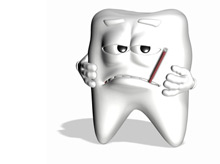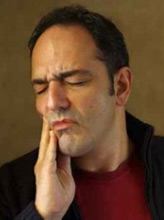
A tooth abscess is an infection that might be of important significance. It usually starts from either a tooth or the gums that surround a tooth. Such an infection can be very uncomfortable, painful, and causing serious problems to a person’s health. Having a dental abscess is therefore not a pleasant experience and something to stay away from. Here are several ways to avoid it:
- Daily dental hygiene is crucial. This includes brushing 3 times a day or after each meal, and flossing at least twice a day.
- Seeing your dentist for regular dental checkups is important, preferably twice a year, in order to verify your teeth for cavities and your gums for gum disease.
- Regular dental scalings and cleanings, preferably every three or six months depending on the gums’ condition, in order to remove any accumulating plaque or tartar.
- Reducing the use of tobacco products, or stopping altogether. Smoking worsens gum disease if present, and makes it very hard to heal.
Source: How Can You Prevent a Tooth Abscess?
Full Article: Dental Abscess
In French: Éviter un abcès dentaire





